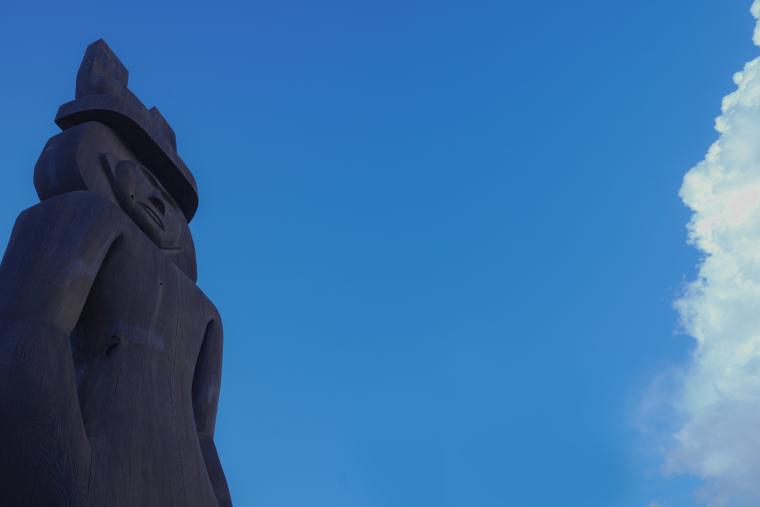- Managing your Practice
-
- Your Benefits
-

Introducing the ultimate Club MD experience
From work to play, and everything in between, we provide you with access to hundreds of deals from recognizable, best-in-class brands, elevating every facet of your life – from practice supports to entertainment, restaurants, electronics, travel, health and wellness, and more. Your Club MD membership ensures that these deals are exclusive to you, eliminating the need to search or negotiate.
Welcome to the ultimate Club MD experience. Your membership, your choices, your journey.
-
- Advocacy & Policy
-
- Collaboration
- News & Events
-

Stay Informed
Stay up to date with important information that impacts the profession and your practice. Doctors of BC provides a range of newsletters that target areas of interest to you.
Subscribe to the President's Letter
Subscribe to Newsletters
-
- About Us
-

Traditional indigenous approach brought to clinics offering Western medicine
September 14, 2023
JCCs: Collaboration in Action

“A culturally safe environment can only be defined by the Indigenous person receiving care and does not profile or discriminate against the person but is experienced as respectful, safe and allows meaningful communication and service. It is a physically, socially, emotionally and spiritually safe environment, without challenge, ignorance or denial of an individual’s identity. To be culturally safe requires positive anti-racism stances, tools and approaches and the continuous practice of cultural humility.” – In Plain Sight Data Report*
To understand why creating culturally safe health care facilities is vital, you must examine the wider systems at play. Understanding the atrocities that Indigenous Peoples have faced is a long and complex process, and the reality is that the foundation for most policies and practices has been based on colonial and racist points of views.
Indian hospitals*/sanitoriums and residential schools often treated Indigenous Peoples as objects of research without their informed consent. Indigenous children were classified as wards of the state. Through their lived experience of intergenerational trauma, Indigenous patients often mistrust government institutions. Most still experience disregard and discrimination, which results into negative perceptions of doctors and health care spaces often are viewed as unsafe places.
In 2014, the Vancouver Indigenous Elders Partnership (VIP) program researched and explored the impacts of providing access to Indigenous Elders as part of routine primary care within Vancouver’s Downtown Eastside. The pilot demonstrated that Indigenous healing and Western medicine, when partnered, can improve health outcomes.
From this pilot program, emerged the Kílala Lelum and Lu'ma Medical Centres which are both situated on the unceded lands of the Skwxwú7mesh (Squamish), xʷməθkʷəy̓əm (Musqueam), and səlilwətaɬ (Tsleil-Waututh) Nations in Vancouver.
The primary care model for these clinics is a combination of patient medical home (PMH) and guidance and leadership from local Indigenous Elders and knowledge keepers. The clinics are Indigenous-focused and Elder-led, and family physicians are provided with one-on-one mentorship by Elders, providing a “partnership model” of care.
Indigenous wellness is defined by the Medicine Wheel: balancing of the mental, spiritual, emotional, and physical health of an individual. This model goes beyond the colonial clinical care system, and provides a holistic, patient-centred, and culturally based care plan. Team based care is provided and includes allied health supports ranging from counselling and social navigation, to dietician services and harm reduction supports.
On Thursday, September 21st, 2023, join Elder Bruce Robinson (Owii`lo`ly`eyum`gaudlth`ni`Ki`insque, Nisga’a), and Drs Terri Aldred (Dakelh), Michael Dumont (Anishinaabe), and David Tu, to learn more about how to provide trauma informed and relational approaches to care.
Hosted by the Joint Collaborative Committees, participants will learn how to put Indigenous Cultural Safety and Humility into practice, what a typical office visit looks like, how to partner with local Elders and traditional healers, and how to navigate creating meaningful relationships with local Indigenous communities.
There will be time for open dialogue and participants are encouraged to ask questions.
How can I learn more?
If you are interested in attending, please register online or visit Collaborate on Health BC.
* "In Plain Sight" by Government of British Columbia is in the Public Domain / A derivative from the original work.
* In this article, we use 'Indian' as that was the term used at the time.




